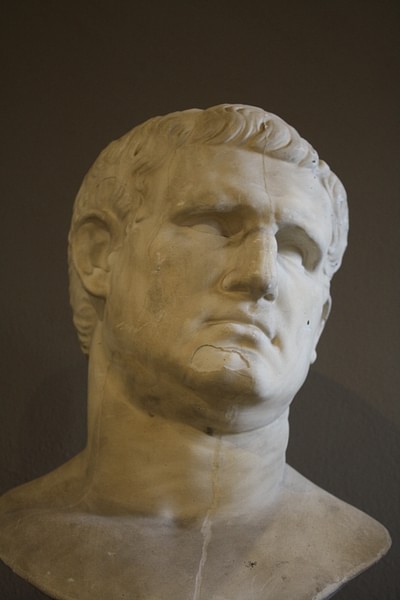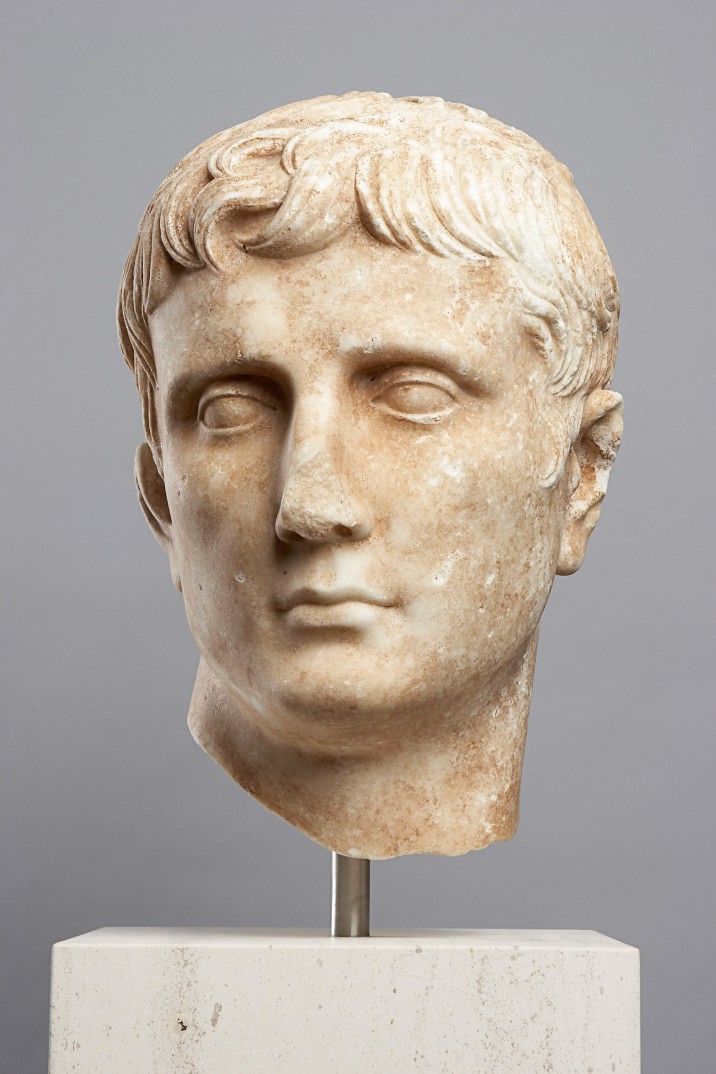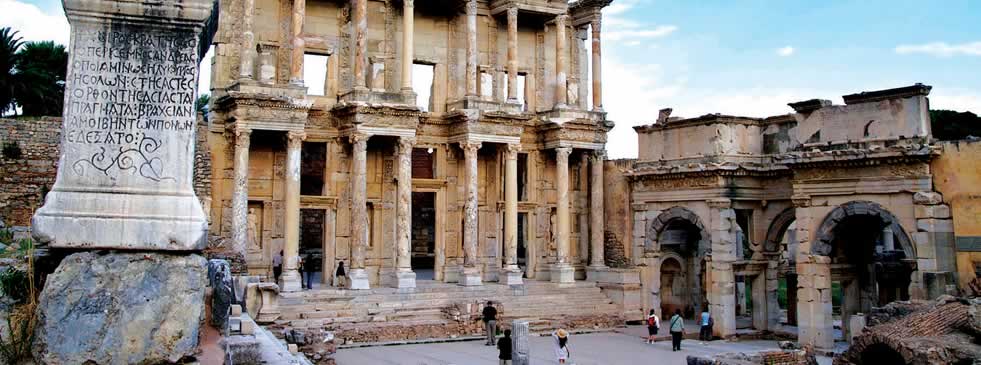Marcus Vipsanius Agrippa: The Unsung Architect of the Roman Empire
An Introduction to Agrippa's Impact on Rome
Roman history is adorned with the exploits of figures like Julius Caesar, Augustus, and Cicero, but often overlooked is Marcus Vipsanius Agrippa, a commander and statesman of unparalleled skill. Born in 63 BCE, Agrippa ascended from relatively humble beginnings to become one of the most influential figures of his time. He played a pivotal role in the foundation of the Roman Empire and left a lasting imprint on the infrastructure, politics, and military prowess of the age.
A confidant and adviser to Augustus, the first Roman emperor, Agrippa's contributions were instrumental in shaping the era known as the Pax Romana—a period of relative peace and stability across the empire. Despite his critical role, Agrippa's legacy is strangely understated in popular historical narratives, yet his influence on the political and architectural landscape of Rome remains profound and enduring.
Agrippa's Formative Years and Rise to Power
Marcus Vipsanius Agrippa was born into a modest equestrian family, a social class below that of the patrician elite but one that still held considerable potential for ambition and maneuvering within Roman society. Agrippa's early years are not extensively chronicled, yet his intelligence and capabilities were evident. His education and formative experiences were closely linked with Gaius Octavius, later known as Augustus. This association would prove crucial as political dynamics shifted in the latter half of the 1st century BCE.
Agrippa's ascent began in earnest during the turbulent times following Julius Caesar's assassination in 44 BCE. The ensuing power vacuum led to a series of civil wars, where Agrippa's strategic acumen and military prowess came to the fore. His prowess in this sphere became particularly evident during the Battle of Actium in 31 BCE. Commanding the fleet on behalf of Octavian, Agrippa ingeniously orchestrated the defeat of Mark Antony and Cleopatra, cementing Octavian's authority. This victory was not merely a triumph in battle but a turning point that signaled the end of the Roman Republic and the dawn of the Roman Empire.
The Architect and Visionary Builder
Apart from his military achievements, Agrippa was a prolific builder whose projects contributed significantly to Roman society and its urban landscape. Among his most lasting legacies is the original Pantheon in Rome, a temple dedicated to all Roman gods. Although the structure we see today is a later reconstruction by Emperor Hadrian, its initial conception stands as a testament to Agrippa's ambition and ingenuity. It showcased the architectural and engineering prowess that contributed to Rome's reputation as an eternal city.
Agrippa's commitment to improving Rome's infrastructure extended beyond monumental architecture. As Rome's aedile, a role responsible for maintaining the city's buildings, roads, and aqueducts, he significantly enhanced Rome’s urban planning. He was pivotal in developing the Aqua Virgo aqueduct, which supplied fresh water to Rome, and the construction of public baths, which improved the quality of life for many citizens.
A champion of public welfare, Agrippa's initiatives were viewed as both a means to gain popular favor and an expression of his genuine concern for the urban populace. Under his direction, Rome's forum and streets were not only beautified but were also transformed into functional and efficient urban centers that facilitated commerce and communication in the rapidly expanding empire.
While Augustus often received the accolades for Rome's transformation, Agrippa’s quiet diligence and strategic intellect made much of it possible. Despite this, he never sought the limelight, often choosing to remain in the background, supporting Augustus and working tirelessly for the empire’s greater good.
Agrippa's Diplomatic Acumen
Beyond his military and architectural achievements, Agrippa was a skilled diplomat and administrator. His influence extended into political and social reforms that aimed to stabilize and unify the sprawling Roman territories. Agrippa’s role as a strategist did not end on the battlefield. He helped orchestrate alliances and manage Rome’s complex relationships with neighboring states and cultures, reinforcing Augustus’s vision of a peaceful and prosperous empire.
His diplomatic proficiency was crucial in securing the allegiance of various territories and mitigating conflicts within the Roman frontiers. Agrippa's peace policies and negotiations fostered a climate of stability that allowed the Roman Empire to thrive, showcasing his capability in governance that matched his military and architectural talent.
Through cultivating relationships with leaders across the Mediterranean and facilitating cultural exchanges, Agrippa ensured a stable and prosperous realm. His comprehensive approach to leadership highlighted his understanding that the strength of Rome was not only measured by its military might but also by its ability to inspire loyalty and cooperation amongst diverse peoples.
In conclusion, Marcus Vipsanius Agrippa's contributions to the Roman Empire were manifold and intricately tied to its formative years. His strategic genius, architectural vision, and diplomatic skill laid down the foundations for the Roman world to flourish under Augustus’s reign. As we delve deeper into his life and legacy, we uncover a figure whose impact resonates far beyond the era in which he lived. We shall explore further in the continuing analysis of his multifaceted career and enduring influence on the fabric of Roman antiquity.
The Military Strategist: Beyond the Battle of Actium
While the Battle of Actium is widely acknowledged as Agrippa's crowning military achievement, it is important to note that his military prowess extended well beyond this single defining encounter. Agrippa’s strategic mastery was demonstrated repeatedly through various campaigns and military reorganization efforts that fortified the rising power of Rome during a dynamic era of change.
During his tenure, Agrippa revamped the Roman navy, transforming it into a dominant maritime force. Despite Rome’s historic prowess on land, control over the Mediterranean was crucial, and Agrippa’s innovations were instrumental in securing this maritime superiority. He introduced large-scale shipbuilding programs and developed advanced naval tactics and equipment, including the incorporation of the "corvus," or boarding bridge, which enabled more effective ship-to-ship combat.
Besides his achievements at sea, Agrippa was also instrumental in consolidating Roman territories on land. Campaigning extensively throughout Gaul, Spain, and the Eastern provinces, Agrippa’s military expeditions helped to subdue uprisings and expand the empire’s frontiers. His leadership was not characterized by sheer force alone; he understood the necessity of integrating newly acquired regions into the Roman realm through infrastructure and diplomacy.
Through these varied efforts, Agrippa laid the groundwork for Roman supremacy throughout the Mediterranean world. His contributions were vital in establishing the conditions that allowed Rome not only to control vast territories but also to manage them with an efficiency that nurtured stability and growth.
The Personal Life and Relationships of Agrippa
Agrippa's personal life was closely intertwined with his public achievements, reflecting both the intricate social network of Roman political elites and his own status as a power broker of immense influence. His marriages and family ties were significant, not only for his personal prestige but also for cementing alliances that fortified his position and influence within the Roman hierarchy.
Agrippa's first marriage to Caecilia Attica connected him to the influential Atti family, which bolstered his status among Rome's aristocracy. However, it was his subsequent marriage to Julia the Elder, daughter of Augustus, that truly intertwined his destiny with that of the imperial family. This alliance elevated his social standing and integrated him into the ruling elite.
The marriage to Julia was not just a personal union but a strategic alliance that ensured the continuity of Augustan policies beyond Augustus himself. As Augustus's son-in-law, Agrippa became the father of several potential heirs to the throne, further cementing the symbolic and literal unification of the Roman power networks. His offspring, including the future emperor Caligula, played pivotal roles in subsequent generations, indicating the enduring legacy of his political alliances.
Despite his close familial ties to the emperor, Agrippa maintained a degree of independence in his various roles. His approach to both personal and political relationships highlighted a balance of power dynamics augmented by mutual respect and obligation, a delicate dance in the backdrop of Roman political machinations.
Agrippa the Patron and Innovator
Beyond his architectural achievements, Agrippa was a patron of the arts and sciences, reflecting his vision for a culturally rich and intellectually vibrant Rome. He supported various scholars, engineers, and architects, fostering an environment where innovation thrived. This patronage extended beyond mere financial support; his involvement often included active engagement with the projects and initiatives he endorsed, demonstrating an earnest commitment to cultural and scientific advancements.
Agrippa’s contributions to cartography and geography were particularly notable. The "Agrippa's Map," a grand map of the Roman world, was commissioned by him and exhibited in the Porticus Vipsania in Rome. It was the most detailed representation of the world known to Romans at the time, showcasing his interest in expanding geographical understanding and his ambition to record the extent of Rome’s influence.
His dedication to scientific inquiry went hand in hand with his pragmatic applications of knowledge, influencing various public works. The myriad of infrastructures, aqueducts, and public baths he built were not only engineering marvels but also served to disseminate Roman culture, demonstrating the interconnectedness of his strategic vision and cultural patronage.
Agrippa's efforts helped to set a precedent for future integration of culture and imperial policy, creating a legacy that underscored Rome’s advancement not only through conquest but also through cultural assimilation and innovation.
The Enduring Legacy of Agrippa
Despite his numerous achievements, Agrippa remained a figure more recognized for his contributions than for any notorious personal ambition or pursuit of power. His life was characterized by service to Rome and a profound loyalty to Augustus, whom he served until his death in 12 BCE. Agrippa's selflessness and dedication were qualities that earned him respect and admiration in his lifetime and contributed to the long-standing stability of the Roman Empire.
Through military triumphs, architectural innovations, and strategic statesmanship, Agrippa left behind a legacy that was deeply enmeshed in the fabric of Roman society. His influence persisted, not only through his immediate family and descendants but also through the infrastructure, policies, and cultural advancements he championed.
As history unfolded, the marks of Agrippa's work continued to impact the evolution of Rome, symbolizing the enduring value of strategic foresight and collaborative leadership. Understanding Agrippa’s role offers a broadened perspective on the forces that shaped one of history’s most formidable empires and sheds light on the nuanced power dynamics and visionary leadership that underpinned its monumental success. Through this exploration of his life, we gain insight into the quiet yet profound ways in which Agrippa's legacy persisted through the twilight of the Roman Republic and the dawning brilliance of the Roman Empire.
Agrippa's Role in the Augustan Reforms
To understand the full extent of Agrippa’s influence, it is essential to delve into his role in the Augustan reforms—sweeping changes that shaped the Roman state and society. Contrary to the often-chaotic political landscape of the late Republic, Augustus aimed to consolidate power and create a stable, enduring government. Agrippa was indispensable in this process, both as a collaborator and executor of policy.
Agrippa shared Augustus’s vision of revitalizing Rome’s foundational institutions and reinforcing moral values across Roman society. He was heavily involved in the moral legislation that Augustus implemented, which aimed to encourage traditional Roman virtues such as frugality, fidelity, and family allegiance. These laws affected aspects of domestic life, from marriage to public behavior, attempting to restore Rome to a past ideal that aligned with Augustan ideology.
Additionally, Agrippa took a hands-on approach with numerous social reforms, including those that sought to integrate different classes within the Roman framework. His repeated work on infrastructure not only improved city life but also served Augustus’s broader goals by promoting a sense of civic unity and identity, reinforcing the social cohesion necessary for sustaining the empire's vast and diverse population.
Agrippa’s understanding of the nuances of Roman society empowered him to navigate its intricacies, offering solutions that harmonized with both public sentiment and imperial policy. In essence, he was a pragmatic yet innovative force in realizing a vision for Rome that melded tradition with the adaptability required for governance of an expansionary empire.
Agrippa’s Legacy in the Arts and Sciences
Agrippa's enduring influence in arts and sciences further underscores the depth of his legacy. By fostering environments where artisans and scholars could thrive, Agrippa contributed to a flowering of Roman culture that reverberated through subsequent generations. His support for Vitruvius, a renowned architect and engineer who authored "De Architectura," ensured the preservation and dissemination of critical architectural principles that influenced the Western architectural canon for centuries.
The public works commissioned by Agrippa were not just a testament to his vision but also a beacon of the cultural and intellectual radiance of the era. He recognized that a city's grandeur was not solely in its structures but in the life and vigor breathing within them. His emphasis on providing sophisticated public amenities—such as baths, aqueducts, and temples—left tangible cultural imprints that shaped the social and intellectual environments of Rome.
Agrippa's patronage extended to technological advancement as well. His involvement with the Aqua Virgo, a remarkable feat of engineering that continues to bring water to modern-day Rome, highlights his dedication to employing scientific understanding for public benefit. This accomplishment underpins a legacy of practical engagement with progress that advocated for the use of knowledge to address everyday societal needs.
The Historical Perception of Agrippa
Despite his high standing and influence, why has history often overshadowed Agrippa’s achievements in favor of Augustus and other prominent figures? This oversight might be ascribed to Agrippa's own choices—his consistent efforts to place Augustus at the forefront of success and his reluctance to claim personal glory. His career features none of the scandal or hubris that often makes figures of history so memorable, which paradoxically reinforces the quality of his service and integrity.
Ancient historians like Suetonius and Tacitus rarely gave Agrippa the spotlight, perhaps due to the perception of him as an exceptional yet ultimately supportive role in Augustus’s larger narrative. His story serves as a valuable lesson in understanding how history appraises individuals based on narratives crafted by and for political powers of their time, often neglecting the contributions of those who preferred strategic foresight over fame.
Modern scholars have gradually revisited Agrippa's role, reassessing his vast contributions to the Roman Empire's inception. This renaissance of interest reflects a broader understanding of the intricate dynamics and diverse personalities that collectively shaped Rome's destiny. In recognizing Agrippa, history not only pays tribute to his achievements but also challenges the simplistic glorification of individual rulers by highlighting the collaborative efforts that often underlie imperial success.
Conclusion: The Quiet Force Behind Imperial Rome
Marcus Vipsanius Agrippa remains a sterling example of the virtues that underpinned the construction of a vast and multifaceted empire. His composite roles as a military strategist, builder, diplomat, and advisor underscore the breadth and depth of his impact on Roman Rome society. Agrippa's story is that of a man who thrived in the challenges of leadership, adopting a reflective and measured approach that consistently prioritized Rome's stability and progress.
Though often in the shadow of Augustus, Agrippa's contributions were no less monumental. His influence pervades the very fabric of Roman history, informing an understanding of the empire that emphasizes collaboration, cultural sophistication, and strategic imperatives.
As we conclude our exploration of Agrippa's life and legacy, it is evident that he is deserving of recognition as a foundational architect of the Roman Empire. His life speaks to the power and importance of selfless service and strategic adaptability, warranting a revered place in the annals of history alongside the more commonly celebrated figures of ancient Rome. Through an appreciation of his legacy, we gain a fuller understanding of the intricate power dynamics and visionary endeavors that fuel the enduring allure of Rome's historic narrative.











:focal(1134x648:1135x649)/https://tf-cmsv2-smithsonianmag-media.s3.amazonaws.com/filer_public/49/26/4926c5f7-b1c9-4b5c-842c-cfe6cdb13a1d/panoramica_1.jpg)

Comments